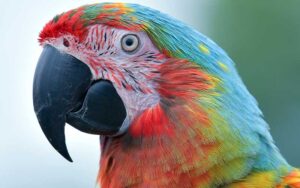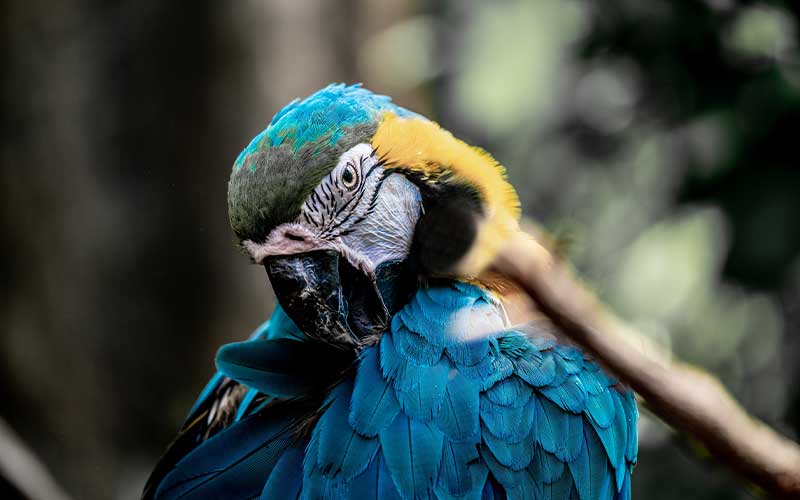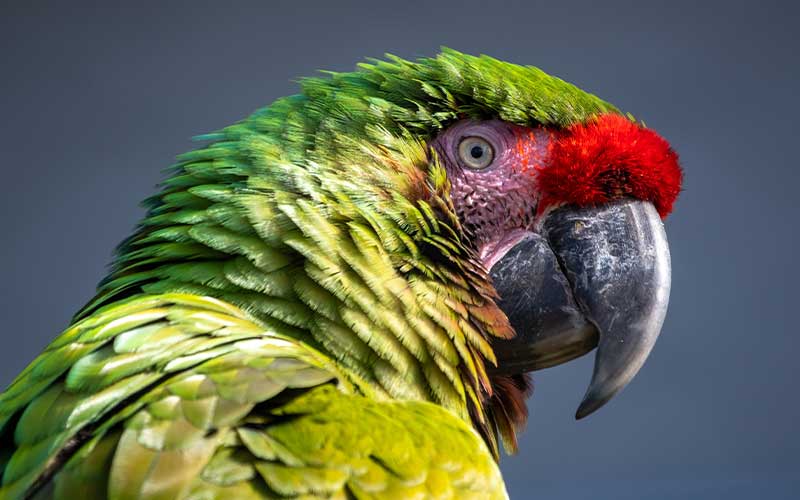
Parrots are colorful and intelligent creatures that can be quite popular as companions among a lot of people. Having a parrot, though, can be a huge responsibility and often requires months of deliberation and preparation. In this detailed manual, we will venture into the realm of parrot care, from selecting an appropriate species to creating the right habitat, proper nutrition, socialization and training, maintaining health and wellness, and ethical responsibilities.
Choosing the Right Parrot Species
In choosing a species of parrot, one needs to be well informed regarding things such as size, lifespan, temperament, noise level, and special requirements. Some of the popular options include cockatoos, macaws, African greys, and conures. The cockatoo parrots can be so affectionate and intelligent but loud most of the time. Macaws are brightly colored, giant birds with interesting personalities; however, they require lots of space and attention. African greys are among the smartest and best human speech mimics, but they are sensitive and must be handled with care. Conures are smaller parrots, and generally speaking, they make far fewer demands regarding space and care, so they could be great for first-time owners.
Creating a Suitable Habitat
An appropriate environment is one of the major keys to your parrot’s well-being. Your parrot requires a spacious cage with ample room for comfortable maneuvering and perching. The cage should be fitted with variably sized and textured perches that keep the feet and joints healthy. Toys and enrichment activities are just as important to stimulate the parrot’s mind and avoid monotony.

Nutrition and Diet
A good, balanced diet is vitally important to the health and longevity of your parrot. Your parrot’s diet should be based on a great variety of fresh fruits and vegetables, with nuts and top-quality pellets for parrots. The diet must exclude all toxic food for birds such as avocado, chocolate, and raw beans. Change the water every day; it is clean and fresh that way.
Socialization and Training
Socialization plays an enormous role in the lives of parrots, providing interaction and stimulation. Early socialization of your parrot will get him or her accustomed not only to people but also to other animals. To take his or her training a step further, you may employ positive reinforcement to teach him or her simple commands like “step-up” and “speak.” You can start playing with them interactively and also provide social stimulation to increase your attachment with the bird.

Health and Wellness
Your parrot needs regular check-ups at the veterinary since that would further help identify problems early. Respiratory infections, feather plucking, and nutritional deficiencies are some of the health troubles your parrot is prone to. Keeping your parrot in clean environments away from diseases is an important part of raising him.
Ethical Issues
Responsible parrot ownership is not just about having the means to provide adequate care, socialization, and enrichment. Adopting a parrot from a rescue organization rather than buying from a breeder helps in parrot population control within the pet trade. Support for wildlife conservation and not buying illegally traded parrots is in order.
Conclusion
Owning a parrot can be such a rewarding and enriching experience. You can help your feathered friend live a healthy, happy life by offering the proper care, socialization, and enrichment. Parrots are a significant commitment, and you need to be prepared for both the challenges and rewards awaiting you from the bird.
Comments